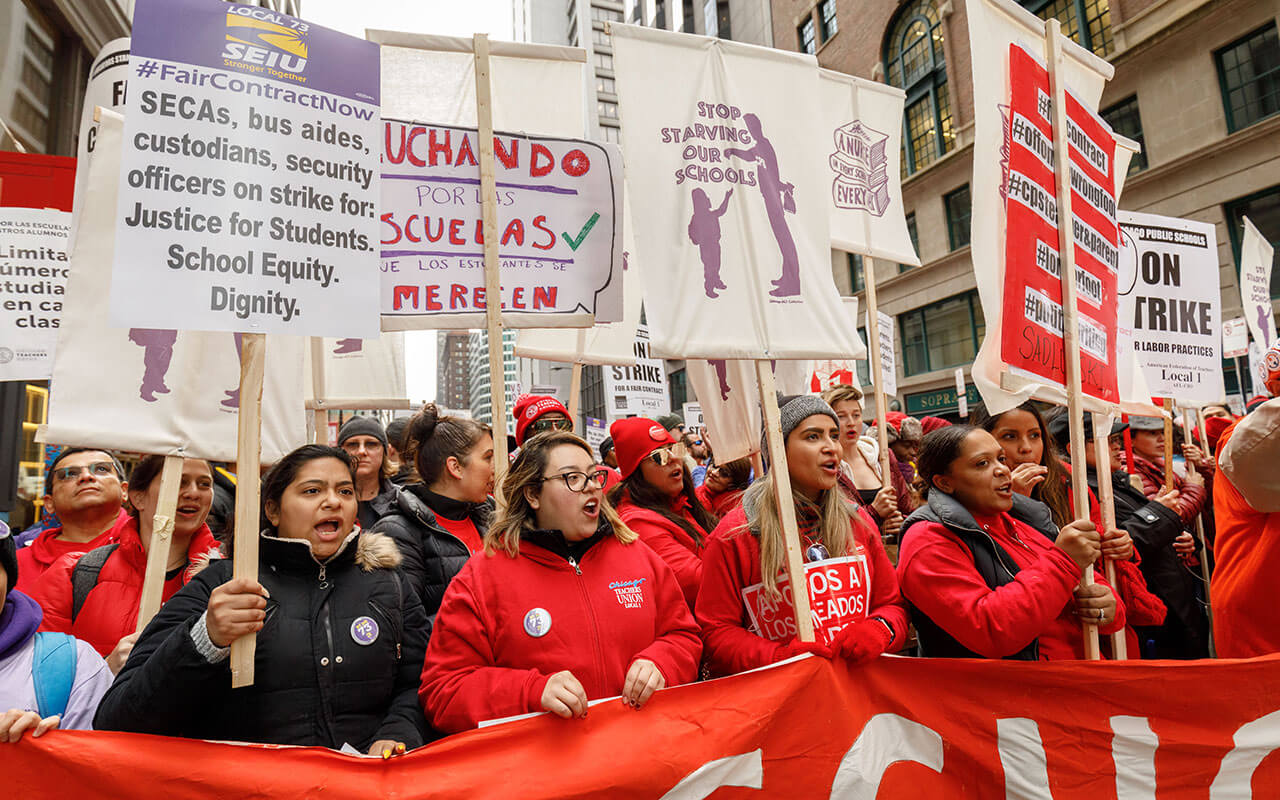Factsheet: The PRO Act addresses income inequality by boosting the organizing power of U.S. workers

The U.S. House of Representatives today will vote on the Protecting the Right to Organize Act of 2019, or PRO Act, the most serious congressional effort to bolster the U.S. labor movement since the failed Employee Free Choice Act of 2009. The PRO Act includes more provisions than its 2009 predecessor to make it easier for unions to organize new workers and workplaces, and ensure U.S. workers receive fair wages and good working conditions. This reflects the increasing recognition of the role a vibrant U.S. labor movement must play in pushing back on the long-term trend of rising income inequality. This concern is echoed by the range of labor market policy proposals from Democratic presidential campaigns.
Download FileFactsheet: The PRO Act addresses income inequality by boosting the organizing power of U.S. workers
The PRO Act would address important structural policy barriers that keep workers from joining unions. Recent research from the Washington Center for Equitable Growth’s network of academics and grantees demonstrates that if the PRO Act did succeed in allowing more workers to fulfill their desire to join unions, this would ensure more equitable and efficient labor markets. Specifically:
The PRO Act would broadly address the current power imbalance between workers and owners in the U.S. labor market.
- The research: History demonstrates the important role of unions in balancing income inequality. Compiled new historical data shows that there has been an inverse relationship between union density and income inequality from 1936 to the present. Monopsony in particular is becoming an increasing concern in the labor market, where employers have the market power to undercut workers’ wages. Unions play a critical role in tempering this exploitation.
- Government support for collective action by workers via unions is critical to reducing so-called rents to firms and ultimately will increase overall social efficiency, with more workers employed at higher wages that actually equal their productivity.
The PRO Act clarifies that workers have a right to strike under the First Amendment of the U.S. Constitution.
- The research: Exposure to the 2018 Red for Ed teacher strikes made families of school-age children more likely to support teacher strikes subsequently and even to consider taking collective action in their own workplaces.
- Strikes have had many benefits for workers, but their use has declined precipitously since the 1970s. Strikes are the leverage point to ensure that workers have the bargaining power to share in economic growth with their employers. The PRO Act clarifies that the First Amendment encompasses the right to perform a “secondary” boycott or strike in solidarity with another union and further, that striking workers cannot be permanently replaced by their employer.
The PRO Act makes it easier for interested workers to organize into a union through fair elections.
- The research: A recent study examines what aspects of unions workers would value, finding that nonunionized workers are increasingly interested in union representation in their workplaces and that workers prioritize collective bargaining as a crucial role for unions.
- The expansion of the ability of unions to organize would give more workers access to collective bargaining over their pay and working conditions. The PRO Act reinforces this by instituting proper restitution for workers when employers violate their rights, punishing illegal election interference, and by facilitating quick and efficient collective bargaining agreements once a union has been formed.
The PRO Act cracks down on employers misclassifying their workers as independent contractors and other abuses.
- The research: Studies on domestic outsourcing and the fissured workplace shows that businesses subcontracting out their workforce leads to lower wages and fewer opportunities for workers and declining job quality.
- Independent contracting lowers wages and allows large companies to retain control over their labor force without any responsibility to the workers, especially among franchises in the fast food industry. This has resulted in an unbalanced labor market, tilted toward large employers. The PRO Act would ensure that companies take responsibility for their employees or else make their contractors and franchises truly independent.
Measures such as the PRO Act are part of a broader movement to reform U.S. labor law so that rebalanced worker power ensures broadly shared growth.
Harvard University’s Labor and Worklife Program recently released its clean slate agenda, which puts forth principles for new labor laws that would support wage growth and ensure well-being for workers and their families. The research shows that expanding workers’ rights and giving unions more tools to balance power in the labor market would benefit the broader U.S. economy. Adapting U.S. labor policy for the modern context would support an equitable economy for everyone.






